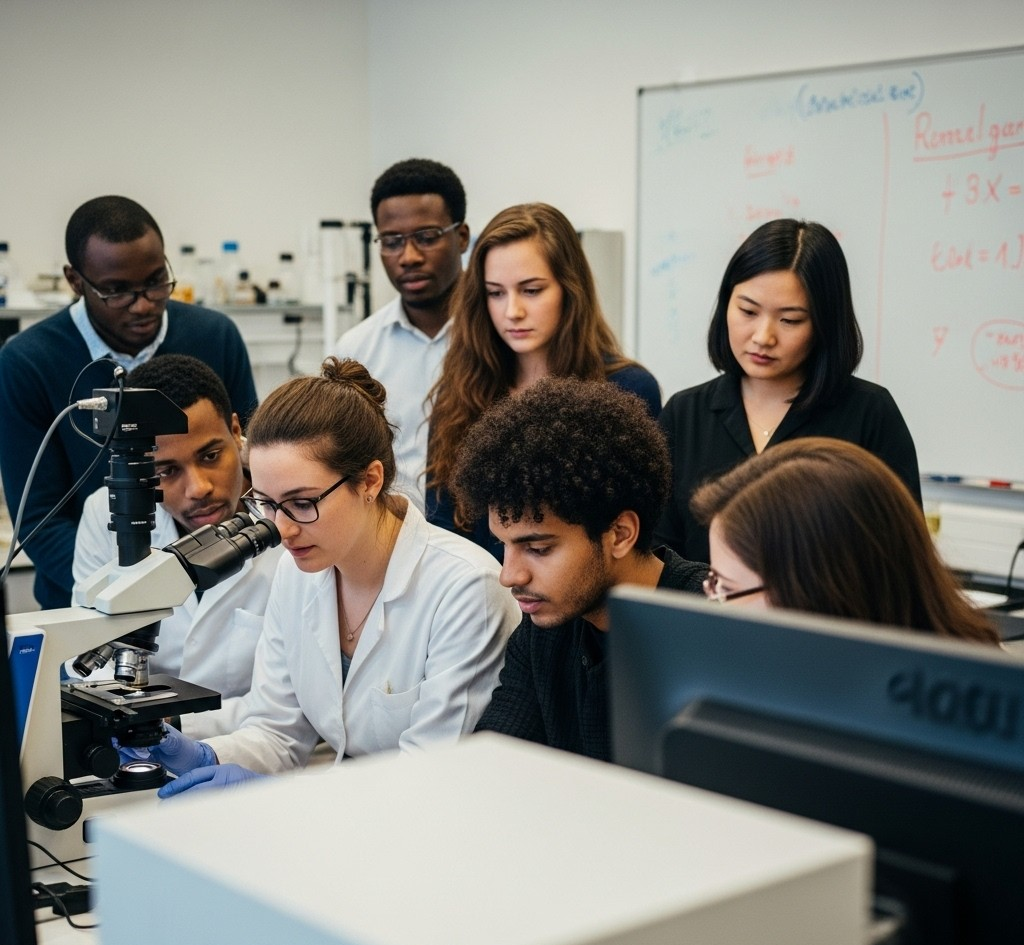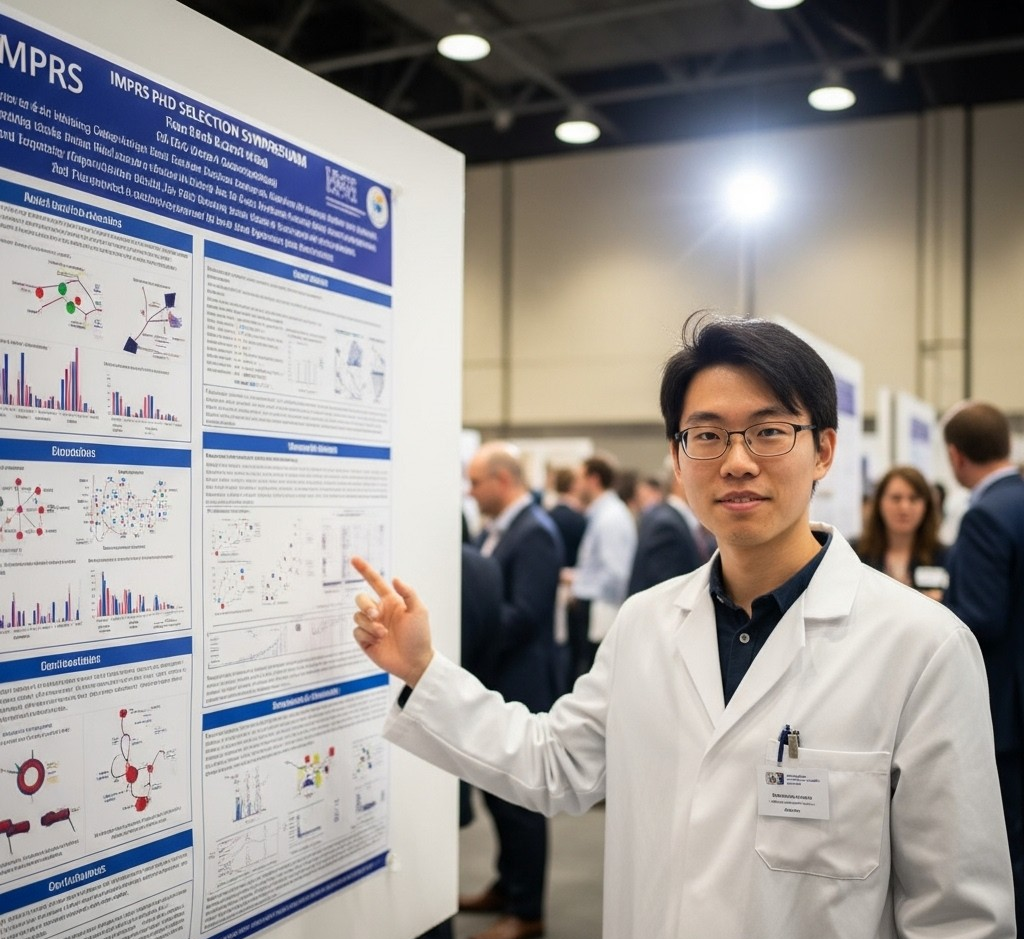Securing a Max Planck PhD Scholarship 2026 is a goal for many aspiring scientists around the globe, and for good reason. It represents a chance to join one of the world’s foremost research organizations. If you’re dreaming of conducting cutting-edge research in Germany but feel overwhelmed by the application process, you’ve come to the right place. This guide will break down every step, transforming your ambition into a clear, actionable plan. We’ll demystify the process, from identifying the right program to crafting an application that truly stands out.

It’s a common point of confusion, so let’s clarify from the start: while you might search for a single scholarship like the “Doucet Scholarship,” the Max Planck Society primarily offers funding through its prestigious International Max Planck Research Schools (IMPRS). These are fully funded PhD positions, not standalone scholarships, offering a comprehensive package for your doctoral journey.
Max Planck PhD Scholarship 2026
| Key Fact | Detail | Why It Matters |
| Fully Funded Positions | PhD positions come with a monthly contract/stipend, typically around €2,000, covering living costs. | This allows you to focus entirely on your research without financial stress, a key component of a fully funded PhD in Germany. |
| World-Class Research | 86 Max Planck Institutes (MPIs) across Germany, many ranked top in their fields. | You’ll work with leading scientists and have access to state-of-the-art facilities. |
| Structured Programs | PhDs are conducted within International Max Planck Research Schools (IMPRS), offering training, workshops, and supervision. Max Planck Society. | This provides a supportive, collaborative environment beyond just lab work, enhancing your skills as a researcher. |
| English is the Lingua Franca | The working language in all IMPRS programs is English. | You do not need to be fluent in German to apply or conduct your research, making it accessible to international talent. |
What is the World-Renowned Max Planck Society?
Before diving into the application, it’s essential to understand the institution you’re aiming for. The Max Planck Society (Max-Planck-Gesellschaft) is Germany’s premier non-university research organization. Think of it as an ecosystem of excellence. With more Nobel laureates affiliated with it than any other research institution, its reputation is built on a foundation of groundbreaking, fundamental research.
Unlike a traditional university, MPIs are solely focused on research. They grant doctoral degrees in partnership with universities, giving you the best of both worlds: the focused, high-impact environment of an institute and the academic credentials of a German university. Directory of International Max Planck Research Schools (IMPRS).

Your Guide to the Max Planck PhD Scholarship 2026
Now, let’s get to the heart of the matter. The “scholarship” is, in fact, a funded position within one of the nearly 70 International Max Planck Research Schools (IMPRS).
It’s Not Just One Scholarship: Understanding the IMPRS System
Each IMPRS is a cooperative venture between one or more Max Planck Institutes and partner universities. They are specialized hubs of scientific excellence, each focusing on a specific area of research, such as:
- Neuroscience
- Computer Science
- Molecular Biology
- Chemical Ecology
- Gravitational-Wave Astronomy
- Demography
Your first task is not to look for a general scholarship, but to find the specific IMPRS that aligns perfectly with your academic background and research interests.
What Does “Fully Funded” Actually Mean?
When you see the term fully funded PhD Germany, it’s a comprehensive package. At an IMPRS, this typically includes:
- A Doctoral Employment Contract: You are often employed by the institute, which means you receive a monthly salary (TVöD E13 pay scale, often 50-65%), social security benefits, and health insurance.
- A Stipend: In some cases, you may receive a generous tax-free stipend.
- No Tuition Fees: Doctoral studies at German public universities (and MPIs) are generally free.5
- Additional Resources: Funding is often available for attending international conferences, workshops, and research stays abroad.
Are You Eligible? Key Requirements for Applicants
While specific requirements vary slightly between each IMPRS, the core eligibility criteria are consistent across the board.
- Academic Qualification: You must hold an excellent Master’s degree (or equivalent, like a four-year Bachelor’s degree with a significant research component) in a relevant field. If you are in the final year of your Master’s program, you are usually eligible to apply.
- Proof of English Proficiency: Since English is the working language, you’ll need to demonstrate your command of it, typically through tests like TOEFL or IELTS. Some schools may waive this if your previous degree was taught entirely in English.
- Strong Research Aptitude: Your application must showcase your potential as a researcher. This is demonstrated through your previous research experience, academic transcripts, and—most importantly—your statement of purpose.
- Outstanding Letters of Recommendation: You will need two or three strong letters from academic referees who can speak to your skills, work ethic, and research potential.
The Winning Application: A Step-by-Step Breakdown
A successful Max Planck Institute application is a marathon, not a sprint. Give yourself several months to prepare a high-quality submission. In my experience advising students, the applicants who start early and meticulously tailor their documents to the specific IMPRS are the ones who succeed.
Step 1: Find Your Perfect Research School (IMPRS)
This is the most crucial step. Don’t just browse; investigate. Use the official Max Planck PhD studies portal to explore the different IMPRS. For each one that interests you:
- Read the Research Focus: Does their work genuinely excite you?
- Explore the Faculty: Identify two or three potential supervisors whose research aligns with your own interests. Mentioning them in your application shows you’ve done your homework.
- Check the Application Deadline: Deadlines vary. Some are in the fall (e.g., November/December), while others might be in the spring. Mark them on your calendar immediately.
Step 2: Prepare Your Core Documents
Gather these well in advance:
- CV/Résumé: Tailor it to be academic. Highlight your research experience, publications (if any), posters, lab skills, and relevant coursework.
- Academic Transcripts: Official copies of your Bachelor’s and Master’s degrees and grades.
- Proof of English Proficiency: Book your TOEFL or IELTS test if you need it, allowing plenty of time for results.
- Letters of Recommendation: Contact your potential referees at least 1-2 months before the deadline. Provide them with your CV, statement of purpose, and information about the IMPRS to help them write a strong, specific letter.
Step 3: Write a Compelling Statement of Purpose
This is your chance to tell your story. Avoid simply listing your achievements. Instead, weave a narrative that answers these questions:
- Why this IMPRS? Show that you understand their specific research program. Name the professors you’re interested in working with and explain why.
- Why this research field? What sparked your passion for this area?
- Why you? Connect your past experiences (projects, thesis, lab work) to your future research goals at the institute. What skills do you bring to the table?
I’ve seen many successful applicants structure their statement like a mini-research proposal, demonstrating not just passion, but also a clear vision for their PhD.
Step 4: Ace the Selection Symposium or Interview
If your written application is successful, you’ll likely be invited to a selection symposium or a series of interviews. This is often a multi-day event (either in person or online) where you’ll present your Master’s thesis work, interview with faculty members, and meet other candidates.
- Prepare Your Presentation: Practice it until you can deliver it confidently and clearly. Be ready for tough questions.
- Know Your Research: Re-read your own thesis and any papers you’ve published. Be prepared to discuss them in detail.
- Ask Questions: This is a two-way street. Prepare thoughtful questions about the lab environment, supervision style, and life at the institute. This shows genuine interest.

Life Beyond the Lab: The Max Planck Experience
Being a PhD student at an IMPRS is more than just research. It’s an immersive experience. You’ll be part of a diverse, international community of bright young minds. The structured programs include workshops on scientific writing, presentation skills, and career development. You’ll also find a supportive network and often enjoy social events that help you settle into life in Germany.
Your Journey Starts Now
Securing a Max Planck PhD Scholarship 2026 is a challenging but incredibly rewarding goal. It’s a pathway to becoming a part of a global legacy of scientific discovery. By being strategic, meticulous, and authentic in your application, you can turn this dream into a reality. The key is to start early, research deeply, and craft an application that reflects your unique potential as a future leader in science.
Your Guide to the Knight-Hennessy Scholarship 2026: From Application to Acceptance
Your Ultimate Guide to Warwick University Chemistry Scholarships 2026: Secure Your Future
FAQs
Q1:Is German language proficiency required for a PhD at a Max Planck Institute?
No. The official working language of all International Max Planck Research Schools (IMPRS) is English.6 All lectures, workshops, and lab communications are in English. However, learning some German is highly encouraged for daily life and will enrich your experience in Germany. Many institutes offer German language courses for their international students.7
Q2:Are there any application fees for the IMPRS programs?
No. The Max Planck Society and its associated IMPRS programs do not charge any application fees.8 This commitment ensures that applications are based purely on merit and not on an applicant’s financial background.
Q3:Can I apply to multiple IMPRS programs simultaneously?
Yes, you can. Since each IMPRS has its own independent application process and selection committee, you are free to apply to more than one if their research areas align with your interests. However, make sure to tailor each application, especially your statement of purpose, to the specific IMPRS you are applying to.










